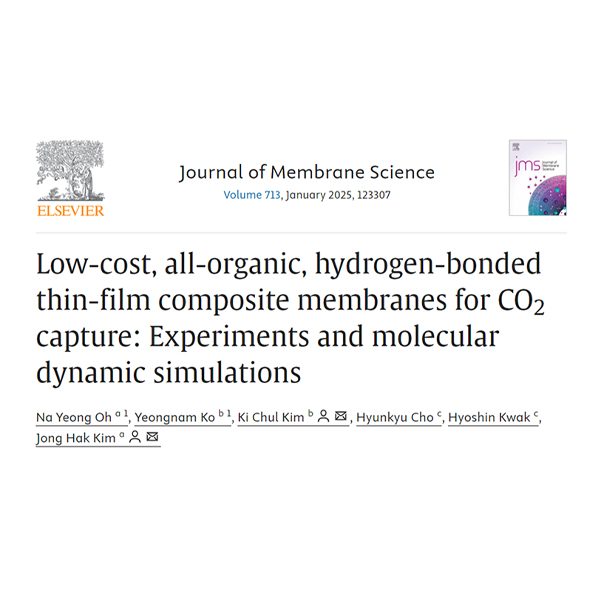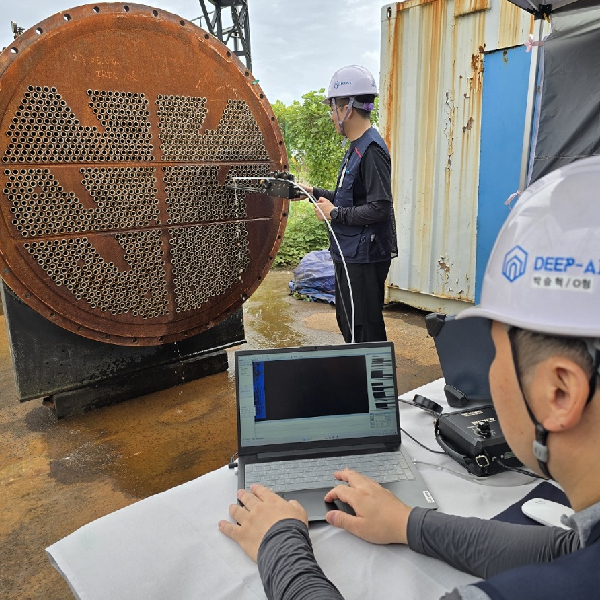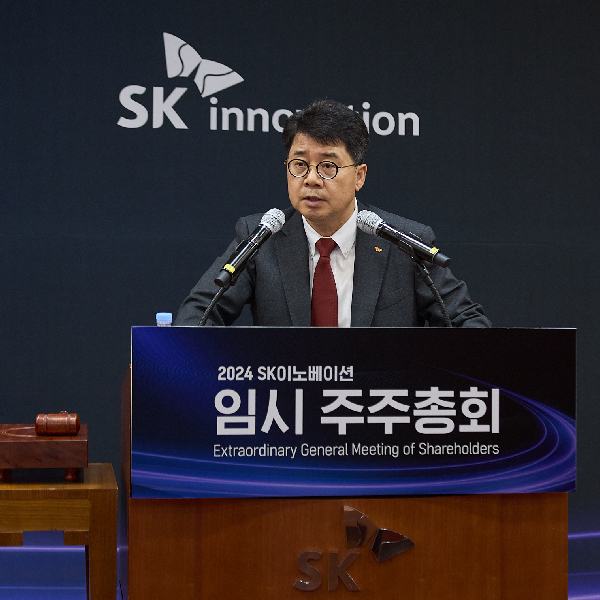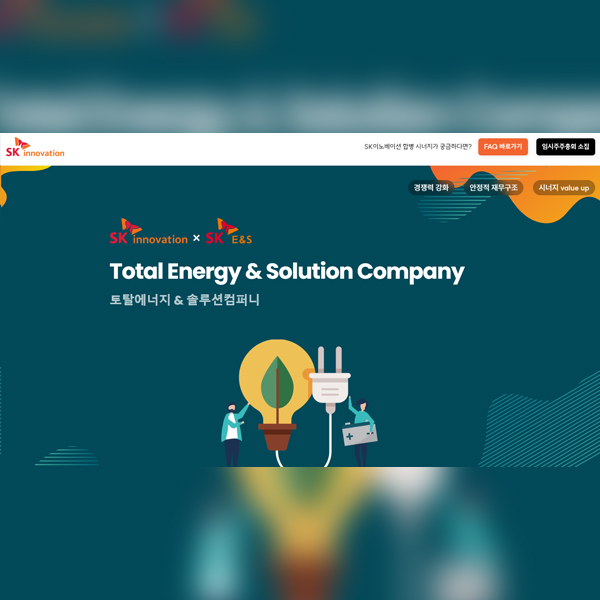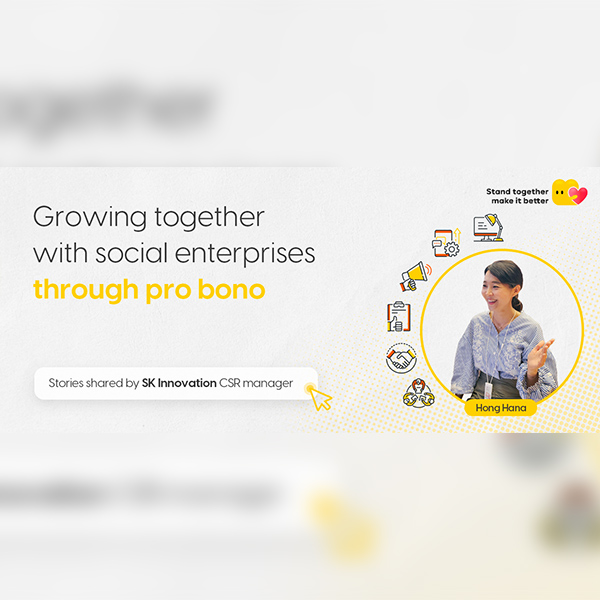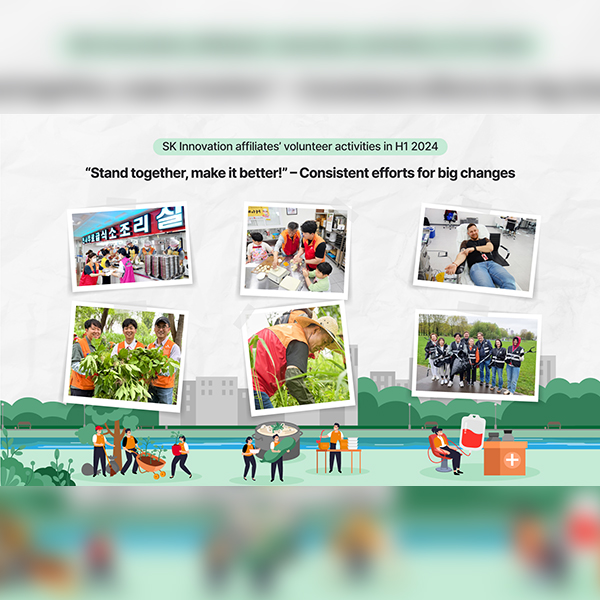 SK Innovation
SK Innovation■ Evenly improved performance in all business areas backed by inventory-related gains of the refining business due to a sharp rise in refining margin and rise in oil prices, and profit increase in the E&P business
– In particular, due to the QoQ increase in the export volume, the refining business achieved operating profit of KRW 1.5067 trillion.
– As the Russo-Ukrainian War has become a cause of the geopolitical energy supply issue, the E&P business will be able to generate stable earnings from oil blocks in Vietnam and Peru.
– The battery business records the revenue of KRW 1.2599 trillion backed by higher revenue volume, expecting to hit the annual revenue of the mid-KRW-7-trillion range, more than the doubled YoY amount.
■ “Despite the rapidly changing management environment, we will strive to accelerate the establishment of the circular economy, such as accomplishing the Net Zero and operating the plastic waste recycling business,” said Kim Yang-seob, CFO of SK Innovation.
On the 29th, SK Innovation announced its Q1 2022 earnings report that it successfully accomplished the revenue of KRW 16.2615 trillion and operating profit of KRW 1.6491 trillion. The company achieved an increase in revenue by KRW 6.8571 trillion and operating profit by KRW 1.0647 trillion over the same quarter in the previous year.
“Compared to the operating loss of about KRW 1.7 trillion, affected by the COVID-19 pandemic in the Q1 2020, we have made a dramatic rebound even though it is momentary,” stated SK Innovation. It explained, “For the Q1 revenue, the rise in oil prices and those of oil products, and increase in the revenue volume of batteries for electric vehicles (EVs) drove the slight increase. In terms of the operating profit, factors, such as the increase in the refining business’ inventory-related gains by the rise in oil prices and the sharp increase in the refining margin, and boosted earnings from the E&P business, have contributed to its increase.”
The pre-tax profit recorded KRW 1.376 trillion as the incidental profit and loss, amounting to KRW 273.1 billion, occurred due to the losses related to the exchange rate caused by its increase and product-related losses derived from the fluctuations in the oil prices.
Despite the improved earnings, the rise in oil prices increased the net working capital. Due to the influence of the facility investment for the battery business, the net debt recorded KRW 10.3975 trillion, increased by KRW 1.9846 trillion compared to the end of the last year.
[First Quarter 2022 Earnings by Business]
The refining business achieved the operating profit of KRW 1.5067 trillion, the QoQ increase by KRW 1.2865 trillion, backed by the improved market conditions due to the bolstered refining margin and increase in the exchange rate, and boosted inventory-related gains derived from the rise in oil prices. Especially, the increased refining margin, driven by the disrupted global supply balance of the oil products and crude oil by the geopolitical issue, and large growth in the export volume of the products compared to the previous quarter worked as an engine to lead the improved profits and losses. * Q1 2022 export volume of the oil products: 31 million barrels (QoQ increase by 35%, increase by 57% compared to Q1 2021).
In terms of the petrochem business, despite the underperformance in the polymer spread, powered by the improved para-xylene spread and enhanced profits and losses from the inventory-related gains driven by the increase in the naphtha price, it successfully made a turnaround as it recorded the operating profit of KRW 31.2 billion, the QoQ increase by KRW 241 billion.
The lubricants business hit the operating profit of KRW 211.6 billion, the QoQ decrease by KRW 56.1 billion due to the decreased margin caused by the steep increase in the production cost and decreased revenue volume.
While the E&P business saw a slight decrease in its revenue volume, due to the increased unit revenue price caused by the rise in oil prices, it achieved the operating profit of KRW 198.2 billion, the QoQ increase by KRW 86.5 billion.
The battery business had an increase in its revenue volume by orders from European clients and increased battery prices derived from the increased metal prices. Those factors worked as a driving force for the business to reach the revenue of KRW 1.2599 trillion, the QoQ increase by KRW 193.4 billion. It is the amount 2.4 times that of the same quarter of the previous year (KRW 526.3 billion). Despite the initial operating costs of the Plant 2 in Hungary, which began the mass production, and increased raw material prices, the battery business experienced operating loss of KRW 273.4 billion, improved by KRW 37 billion from the previous quarter, due to the increased revenue volume and reduced one-off costs.
While there were decreased revenue volume in the lithium-ion battery separator (LiBS) and increased operational expenses, the materials business reduced the one-off costs and recorded operating loss of KRW 3.1 billion, the QoQ increase by KRW 29.3 billion.
[The Carbon to Green Strategy to Accomplish the Net Zero]
In March, at the annual general meeting of shareholders, SK Innovation announced, “Based on the Financial Stories of respective subsidiaries, we will make tangible outcomes and become fully recognized as a ‘Green Energy & Materials Company’.”
SK Innovation’s battery business is expected to reach the annual revenue of the mid-KRW-7-trillion range, which is more than the doubled YoY amount (KRW 3.0398 trillion), as it takes account of the increased revenue backed by mass production from new production plants in the US and Hungary, and the increased battery prices.
Its plants in the US and Hungary initiated commercial operation with a production capacity of 9.8GWh and 10GWh, respectively, and the global battery production capacity is expected to have a significantly large increase of up to 77GWh once the plant in Yancheng, China, starts commercial operation at the end of the year. As its plants sequentially start commercial operation, the Plant 2 in Georgia, the US, in Q1 2021, Plant 2 in Yancheng, China, and Plant 3 in Hungary in 2024, and BlueOvalSK Plant in 2025, the battery business plans to secure the global production capacity of 88GWh by 2023 and more than 220GWh by 2025.
For the materials business, as its lithium-ion battery separator (LiBS) production plant in Poland and the one in China commenced commercial operation in the last year and Q1 of this year, it is expected to have a large improvement in its revenue and operating profit. Due to the rapid growth of the global EV battery and IT industries, it is forecast that the materials business will secure a global production capacity of 1.53 billion m² by the end of this year, increased to 2.73 billion m² by 2024, when the construction of plants 2,3, and 4 in Poland is completed, and 4.02 billion m² in 2025.
On the other hand, the E&P business is expected to secure stable earnings for the time being due to the geopolitical energy supply issue, caused by the Russo-Ukrainian War. SK Innovation’s subsidiaries, including SK Earthon, have been participating in 11 oil blocks and 4 LNG projects in 8 countries, including Vietnam and Peru, across the globe. SK Earthon recently participated in the bid for the oil block in Malaysia and successfully won the “Block SK 427,” located off the coast of the Sarawak region. In addition, in the midst of the growing importance of energy security, it plans to push forward with expanding the business in the Southeast Asian region, and, at the same time, expand the eco-friendly business portfolio centered on CCS (Carbon Capture & Storage).
“Due to the unstable energy supply by the geopolitical issue, the rise in oil prices and improved refining margin contributed to improved earnings of all business areas, including the refining business. But, unstable management environment and high volatility of the market conditions have continued more than ever,” said Kim Yang-seob, CFO of SK Innovation. He added, “Despite the rapidly changing management environment, we will strive to accelerate the establishment of the circular economy, such as accomplishing the Net Zero and the plastic waste recycling business.”
[Attached]
| 1. SK Innovation quarterly earnings (based on K-IFRS) | (Unit: KRW hundred million) |
| Q1 2021 | Q4 2021 | Q1 2022 | YoY | QoQ | |
| Revenue | 94,044 | 137,213 | 162,615 | +68,571 | +25,402 |
| Operating income | 5,844 | -585 | 16,491 | +10,647 | +17,076 |
| 2. 2022 Q1 earnings by business (based on K-IFRS) | (Unit: KRW hundred million) |
| Refining* | Petrochem | Lubricants | E&P | Battery | Materials** | Staff | 계 | |
| Revenue | 106,427 | 28,060 | 10,429 | 4,202 | 12,599 | 679 | 219 | 162,615 |
| Operating income | 15,067 | 312 | 2,116 | 1,982 | -2,734 | -31 | -221 | 16,491 |
(*) Refining: SKE, SKTI, SKIPC refining business/ petrochemical: SKGC, SKIPC petrochemical business
(**) Materials : Based on consolidated financial statements of SK Innovation, which removed internal transactions of SK Innovation affiliates.










 Youtube
Youtube Facebook
Facebook Instagram
Instagram Linkedin
Linkedin











